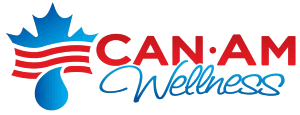Uncategorized
What is the right way to hydrate your body?
What is the right way to hydrate your body?
How do we know we are hydrating our bodies optimally? Expert explains how to go about it.
Your body’s thirst cues are the most reliable indicator of hydration needs.
Water is crucial for our physical wellness, said Sanchi Tiwari, a nutritionist at Lord’s Mark Biotech, who also emphasized the importance of being hydrated and clarified common misconceptions about drinking water.
Beyond eight glasses per day
While the ‘eight glasses a day’ rule is often cited, Tiwari stressed that your body knows when it needs water. “Listen to your thirst cues, they are your body’s natural way of communicating hydration requirements.”
However, certain factors can influence how much water you need:
Activity Level: Sweat more during exercise or hot weather? Drink more, Increased activity leads to greater fluid loss through sweat, necessitating more water intake.
Age: Children and older adults may require extra attention to hydration, as their thirst cues might be less pronounced.
Medical Conditions: Certain medical conditions like diabetes or kidney problems can affect fluid needs. Consulting a doctor is crucial in such cases.
Electrolytes are minerals that play a crucial role in maintaining fluid balance in the body. Tiwari emphasises their importance, stating, “Electrolytes are essential for fluid balance in our body. If you sweat excessively, which could indicate hyperhidrosis, it’s important to stay hydrated — but not just with water. There are several ways to replenish electrolytes and maintain proper hydration.”
For people who sweat a lot, simply drinking water might not be enough. Electrolyte-rich beverages or foods can help replenish these minerals lost through sweat.
Hydration Dehydration is a worry, but overhydration can also be dangerous.
Overhydration
Dehydration is a worry, but overhydration can also be dangerous. Tiwari explained that overhydration is not good for the body, it uses electrolytes from your body, few conditions like your heart rate will have certain problems, drinking too much water.
While water is essential, Tiwari acknowledged that other beverages and foods can contribute to hydration. “Some people consume a lot of coffee or tea, which can contribute to hydration to some extent. However, fruits like watermelon are also great for hydration, as are beverages like fruity milk and fruit juices. Additionally, fruits and vegetables with high water content can be excellent sources of hydration.”
Debunking hydration myths
There’s a lot of misinformation about hydration. Tiwari debunks a common myth, stating: “It’s a misconception that everyone needs to drink 8 glasses of water a day. Every body is different, and the amount of water needed varies from person to person. You should drink when you feel thirsty, as your body naturally signals when it needs water.”
Five nutritionist-approved ways to stay hydrated
Your body’s thirst cues are the most reliable indicator of your hydration needs. If you don’t get enough water, your kidneys may struggle to function properly, leading to urine that is yellow or dark yellow in color — a sign that you are dehydrated. Your body will signal when you need more water.
By understanding your individual hydration needs and incorporating a variety of hydrating options into your diet, you can ensure your body functions at its best. So, next time you reach for a drink, remember you’re not just quenching your thirst, you’re fueling your entire body.
